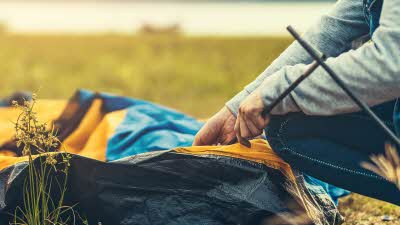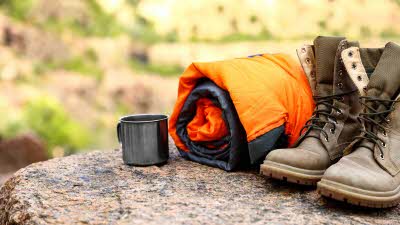Beginner's guide to camping
Beginner's guide to camping
- Home
- Advice & training
- Advice for beginners
- Camping tips and advice
- Beginner's Guide to Camping
Types of camping
Camping on campsites
Over 50 Caravan and Motorhome Club sites have dedicated camping areas, where you can pay for a pitch for a dedicated amount of time. Having your own pitch means you'll have a space that's your own to use for as long as you stay, and these are often maintained by the campsite. You'll likely be surrounded by fellow campers too, allowing you to share camping tips and advice.
You'll need to bring all the common camping gear (see our list of camping essentials), though some sites - including lots of Club sites - will have a small shop available where you can purchase camping necessities.
Most campsites will have a toilet/wash block available free of charge, and some may also have Electric Hookup (EHU) available, meaning you can plug in certain appliances for some creature comforts.
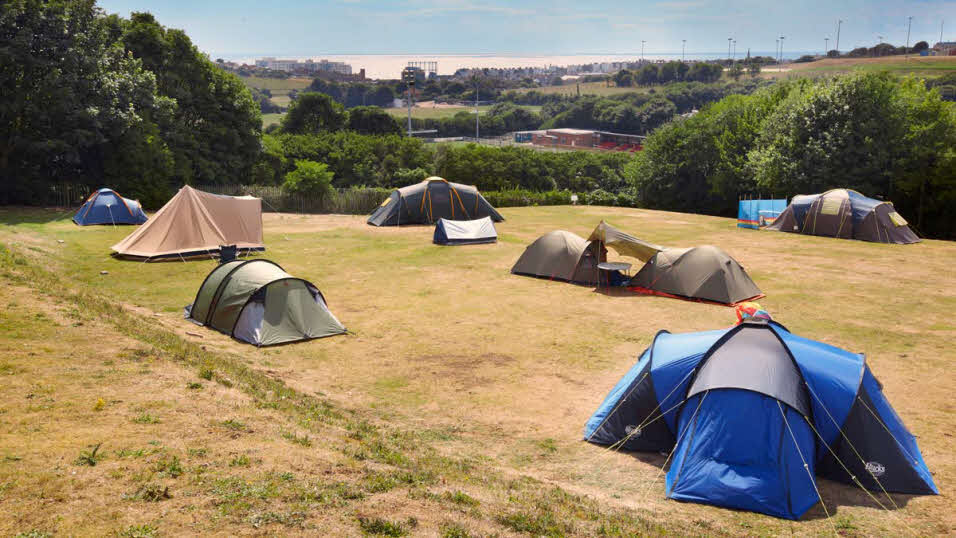
Wild camping
If you want a bit more freedom from your camping trip, wild camping could be what you're looking for. Instead of pitching up at a dedicated campsite and being assigned a pitch, with wild camping you simply turn up and pitch up. This sort of camping is not legal in much of England and Wales, unless you have express permission from the landowner. Here, you'll need all the essentials for being alone in nature, and won't have access to electricity or running water.
Festival camping
Much like wild camping, with festival camping you simply turn up at the dedicated camping area and pitch your tent. Often, there won't be dedicated pitches, so you'll have to work out the best place to camp. Again, you'll need all the essentials for camping, but festivals will usually have food and drink stands available if you don't fancy trying to start a campfire. You'll also find toilets located on the festival site, though these might be a walk away from where you're pitched.
Glamping
For those who want a few more mod cons than traditional camping can offer, glamping is a great option. Some glamping sites offer pre-pitched tents, taking the setup time out of the camping experience. Others, like glamping with Experience Freedom, offer glamping units to stay in; from pods to yurts, lodges and cabins. There are plenty of weird and wonderful accommodation types on the market, so if you've always dreamed of sleeping in a woodland treehouse, glamping could be for you.
You'll still need to pack the essentials, but often won't need any specialist equipment, which can keep the cost of an outdoor holiday down somewhat. However, bear in mind that glamping holidays are often more expensive than their camping counterparts.
Cooking outdoors
Cooking outdoors is an essential part of the camping experience. Whatever you’ll be eating when you’re away, make sure you’ve got all the tools you’ll need.
Gas stoves or disposable barbecues are to be used instead of open fires on Caravan and Motorhome Club sites, and must be raised off the ground to reduce fire risk. You should always check the rules of the campsite you’re staying on and make sure that you keep smoke and fumes under control when using a barbecue or open fire.
When it comes to utensils, what you bring with you will depend on what you plan on cooking. One-pot dishes are a camping staple, as they are quick and easy and don’t require so much washing up. You’ll also likely want a pan, a spatula and some tongs. Aluminium foil can also be useful.
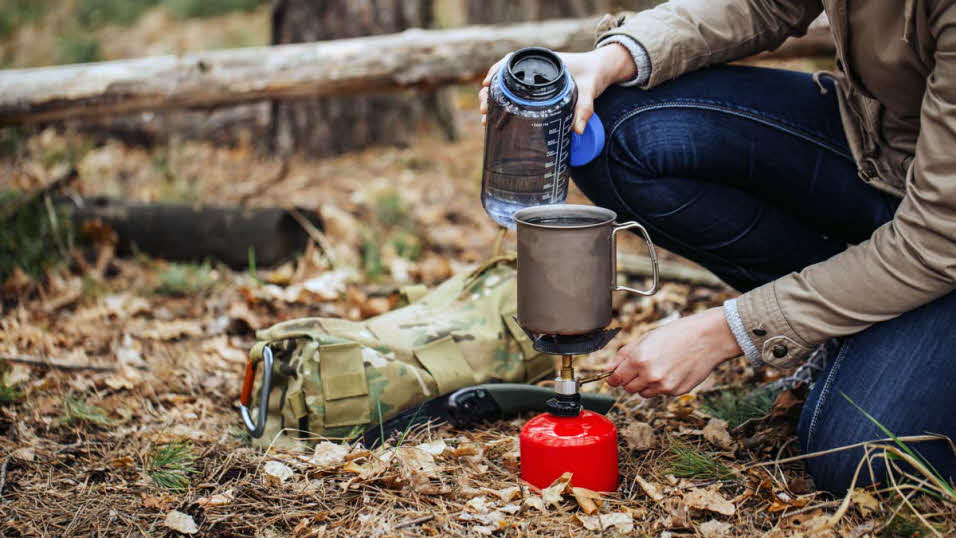
If you’re worried about cooking outdoors, an easy way to get started is to prepare meals ahead of time so that they just need reheating when you get to camp. In this instance, you’ll need to make sure you’ve got a working cool box or facilities to keep your food chilled before cooking. If you don’t have time to cook meals in advance, consider measuring the ingredients you’ll need for each meal before you travel and keeping them in separate containers, ready to cook and assemble on site.
It’s also a good idea to have some non-perishable snacks on hand like crackers, crisps and nuts.
Looking after your tent
If you want your tent to last a long time, it’s important to look after it properly. Making sure you pack it away properly will help keep it in good condition, as if you rush this step you could tear the fabric or increase the likelihood of mould or damp occurring. To do this, make sure the tent is clean and dry (inside and out) and poles are clean and undamaged before you pack it away.
It’s easiest to spot any repairs that need doing whilst the tent is still up, so it’s best to try and fit some time in to give it a once-over before you depart the campsite. Check for rips and loosening of the seams and make note of anything that needs properly repairing before your next trip.
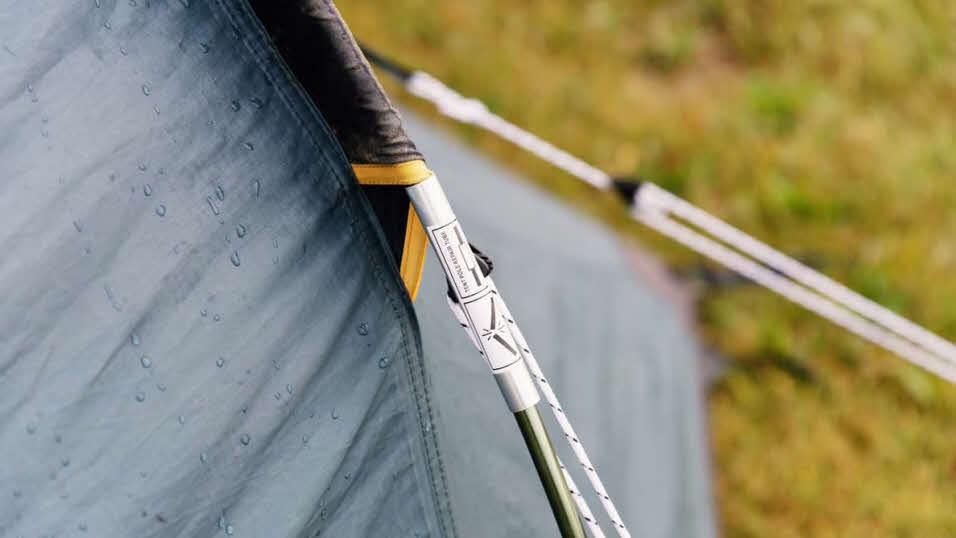
Clothing and footwear
When it comes to clothing, it’s always best to overpack (space permitting) to make sure you’ve got plenty of options. If the weather turns sour on your trip, you’ll need enough dry clothes to last. Whilst specialist camping gear may be beneficial, it's not always necessary. Think about what activities you'll be doing on your camping trip. Layers are your best friend when exploring the great outdoors, so make sure you've included a mix of thick and thin layers to pile on when the heat drops.
It's particularly important to dress in practical clothes whilst travelling. Opt for comfort, but clothing that you don't mind getting a bit dirty when setting up or taking down your tent.
As for footwear, this is dependent on how you intend to spend your time. If wild camping, a sturdy pair of walking boots will likely be necessary, but if you're staying on a campsite you may simply need a pair of comfortable, closed-toe shoes. It's also probably a wise idea to take some suitable shoes for the shower block, such as flip-flops or crocs to shower in. Wellies are another good option if bad weather strikes.
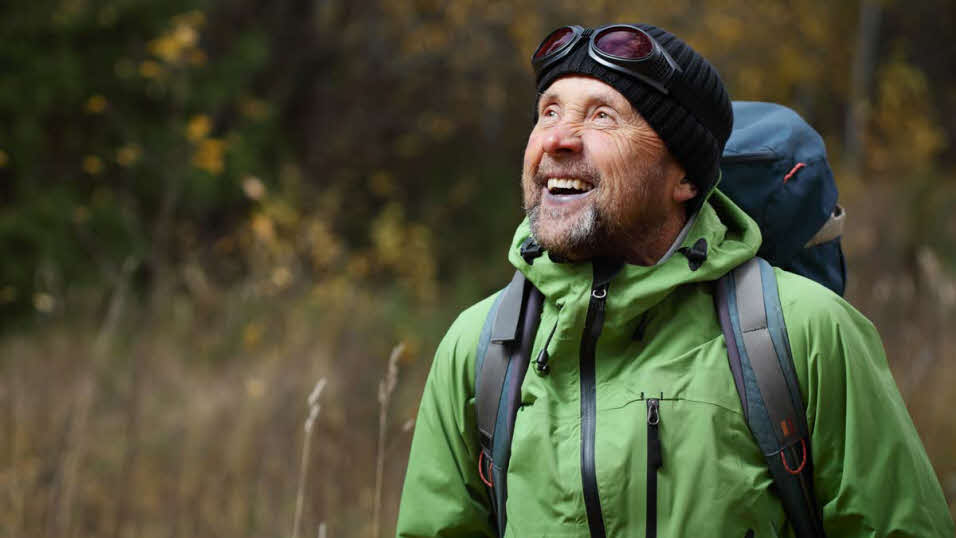
Choosing a site
There are plenty of factors to consider when choosing a campsite. Are you staying close to home? Do you need specific facilities? What sort of cooking equipment are you allowed to bring?


